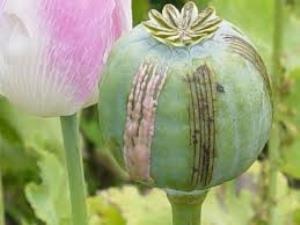The World Health Organization is going to review the status of coca leaves, the Colombian Senate kills mariuana legalization, at least for now, and more.

FDA Asked to Review MDMA as Treatment for PTSD. The Multidisciplinary Association for Psychedelic Studies (MAPS), through its MAPS Public Benefit Corporation, has asked the Food and Drug Administration (FDA) to formally review MDMA in conjunction with therapy as a treatment for Post-Traumatic Stress Disorder (PTSD).
The FDA now has 60 days to decide whether the New Drug Application will be accepted for review and whether to fast-track it.
FDA granted MDMA-assisted therapy a breakthrough therapy designation in 2017, a move that accelerates the development and review of substances intended to treat serious conditions and that preliminary clinical evidence suggests may be a substantial improvement over therapies currently available.
MDMA has been found to reduce symptoms and impairment from PTSD. MAPS has now completed six late-stage clinical trials of MDMA for PTSD and pronounced itself ready to move forward.
"The filing of our NDA is the culmination of more than 30 years of clinical research, advocacy, collaboration and dedication to bring a potential new option to adults living with PTSD, a patient group that has experienced little innovation in decades," said MAPS PBC CEO Amy Emerson.
International
WHO Officially Launches Procedure for Critical Review of Coca Leaf Status. World Health Organization (WHO) Director-General Tedros Adhanom Ghebreyesus told Bolivian Vice-President Jilata David Choquehuanca at a meeting in Geneva that the organization has initiated official procedures to carry out a critical review of the current classification of the coca leaf in Schedule 1 of the 1961 Convention on Narcotic Drugs.
"A very important meeting was held between the Vice President of Bolivia and the Director General of the WHO in which the issue of the critical review of the coca leaf was addressed and it was officially announced by the Director General that the procedures have been initiated after receiving the notification from the Secretary General of the United Nations," explained Juan Carlos Alurralde, Secretary General of the Vice Presidency.
Ghebreyesus said the WHO will soon call for the formation of a committee of international experts in different fields.
"An evaluation will be made of the coca leaf in terms of chemistry, pharmacology, toxicology, natural medicine and traditional uses, the latter areas have been proposed by Bolivia, by our Vice-President, and experts in this area will also be taken into account and sought," Alurralde noted.
At the plenary of 66th session of the UN Commission on Narcotic Drugs in March, Vice-President Choquehuanca, called for international bodies to respect for the legitimate right of peoples to make "traditional, nutritional, therapeutic, ritual, industrial and commercial use of the coca leaf in its natural state."
Bolivia withdrew from the 1961 Single Convention on Narcotic Drugs in 2012 over its inclusion of coca leaf as a controlled substance. It rejoined the treaty the following year after winning a "reservation" where the UN recognizes as legal the traditional practice of chewing coca leaves.
Colombia's Senate Once Again Sinks Proposal to Legalize Marijuana. The Senate has once again rejected an effort to legalize marijuana. On Tuesday, just before formal debate on the measure began, a proposal to "archive" (defer) the bill from Liberal Senator Karina Espinosa received enough votes to pass.
That sparked an angry riposte from bill sponsor Senator María José Pizarro, who criticized senators who voted to kill the bill, blaming them for enabling organized crime to profit and leaving youth and consumers at the mercy of illegal traders and drug traffickers.
"The real people responsible for handing over youth to violent mafias are those who voted to file the project to regulate the commercialization of ADULT USE cannabis WITHOUT A SINGLE ARGUMENT. Shame," she wrote on X, formerly known as Twitter.
But conservative former president Alvaro Uribe, who has long opposed marijuana legalization, was pleased. "Congratulations to the 45 senators who, with their vote, prevented the legalization of recreational marijuana consumption," he said on X.
This marks the second time the Senate has killed marijuana legalization. It did so as well in June. Under Colombian law, marijuana legalization has to be taken up by the Senate in two separate years, which means that now the soonest Colombia could finish that process will be 2025.
Myanmar Dethrones Afghanistan as World's Top Opium Producer. In a report released Tuesday, the UN Office on Drugs and Crime (UNODC) said that Myanmar had overtaken Afghanistan as the world's leading opium producer. Afghanistan had held first place for more than 20 years, until a Taliban ban on the poppy crop was announced last year and took hold this year.
Amidst an economic crisis caused by the ongoing civil war there, Myanmar produced an estimated 1,080 metric tons of opium this year, up 36 percent over the 790 metric tons produced last year. By contrast, Afghanistan produced only 330 metric tons of opium, down about 95 percent from previous totals.
The amount of land devoted to poppy production has expanded significantly since the military threw out the democratically elected government in 2021, with 120,000 acres now under cultivation, up 18 percent from last year.
"In the current situation, farming communities are caught between insecurity and economic hardships," said Benedikt Hofmann, UNODC Deputy Regional Representative. "Even more people will look at opium as a viable crop if there are no alternatives, especially in the absence of the rule of law."
UNODC Regional Representative Jeremy Douglas said intensifying conflict in Shan State -- where there has been vicious fighting between ethnic groups and the military -- and along border regions will likely "accelerate this trend" towards poppy cultivation.
This work by StoptheDrugWar.org is licensed under Creative Commons Attribution-ShareAlike 4.0 International
Add new comment